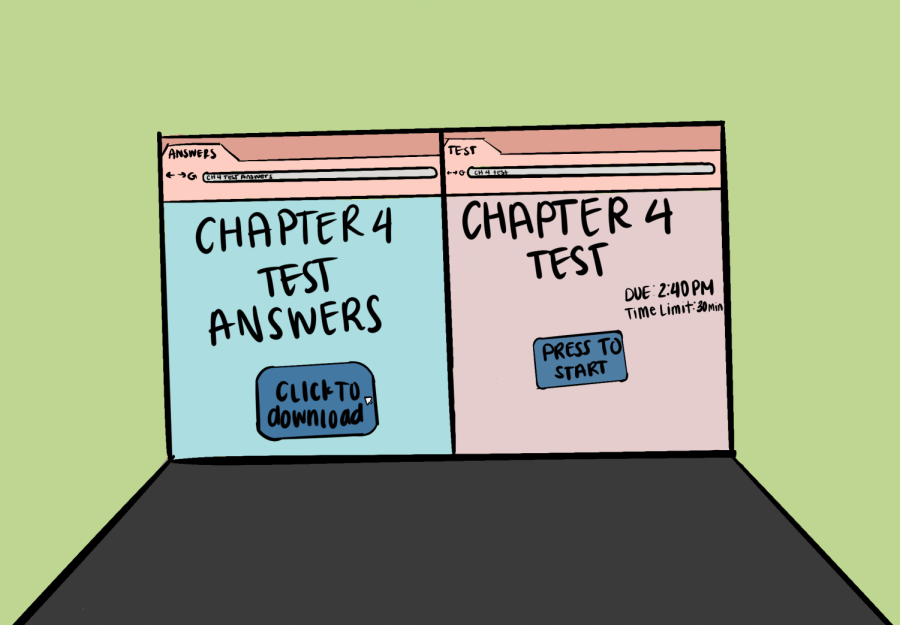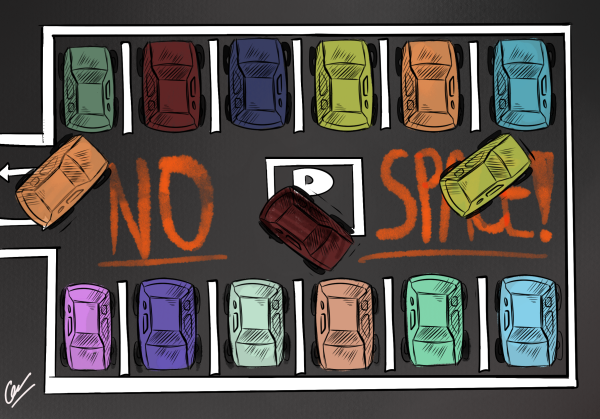[Opinion] The American School System is in dire need of reform
The American school system is lacking in qualities many other countries’ school systems possess.
November 7, 2021
America’s school system has been subject to several discussions on its efficacy, as other countries often praise America for its widespread approach to education. However, people do not recognize that in more ways than not, it is actually widely unsuccessful when it comes to learning strategies.
The current school system is centered around scores and grades as the only measure of academic progress and achievement. This results in the corruption of the education process, with students trying all ways and shortcuts to get the grades they desire. Students will go to extreme lengths to receive the “perfect” grade, such as cheating or plagiarizing with 95% of students having admitted to cheating.
Higher grades have become expected for students, with the standard being straight A’s. Students are pressured into working their hardest to achieve straight A’s at any costs. However, this is not always viable, as students juggle work for other classes, as well as extracurriculars and sports.
Students in Advanced Placement or Honors classes surprisingly cheat more than those in average classes. In these advanced classes, 74% of students cheat to get higher grades and perfect their grade point average.
America’s school system uses a student’s grade point average (GPA) to assess their class rankings, and can prevent students with certain GPAs from participating in enrichment opportunities such as clubs, events and leadership roles.
For example, the National Honor Society requires its applicants to have a GPA of 3.0 on a 4.0 scale, or equivalent standard of excellence.
Unrealistic expectations are placed upon students to achieve the unachievable for college admissions. Good grades are not enough for admissions offices, they are looking for well-rounded, interesting applicants. However, that is a package of all sorts: excellent test scores, GPA, clubs, extracurriculars, passion projects etc.
Not to mention the system is monetarily founded at its root, as students with more refined socioeconomic backgrounds tend to have greater opportunities at their disposal. Students from lower socioeconomic backgrounds are typically forced to attend underfunded schools, lacking higher level classes and enrichment.
Parents that are able to provide more for their children can fund for private tutors, which is a privilege not many can afford. For example, private SAT and ACT tutors can average about $45-100 an hour. Tools like such better improve these students’ acceptance into private universities, or even Ivy Leagues.
Students that attend private or feeder schools receive greater opportunities than those in public schooling. Class sizes in private schools are significantly smaller, and can provide more one-on-one nurturing.
Students will take challenging courses not to learn or receive higher level education, but to better their college admissions by boosting their GPA.
Students in America are not interested in actually learning. They have been taught all their lives how to get an acceptable grade, no matter the means it takes to accomplish it.
The system clearly needs improvement. As future generations begin their schooling, they must understand that learning and grasping content is greater in value than the big ‘A’ smeared across the cover of their paper.
The system needs to clearly distinguish that grades or college acceptance is not the ultimatum of education. Instead, they must institute healthy goals for students to learn and challenge themselves in school.
The system should not use grades as the indicator for knowledge but for inspiring students to try their best, and instead have teachers fill out performance cards on a quarterly basis. Accessing the students intellectual development as opposed to the letter grade earned.
Using performance cards will allow for parents, teachers, and students to all properly access how each student is developing and learning throughout the quarters. That way they can adjust any quirks or problems along the way, maximizing student learning as opposed to just grades.
Also, students will no longer feel pressured into earning grades as that is not the only form their education will be measured. Students should also meet with guidance counselors often to better understand their schooling in a hands-on approach.
If these measures are implemented, future students can receive the education that prior students were deprived of, creating meaningful and lasting impacts on the American school system.
























